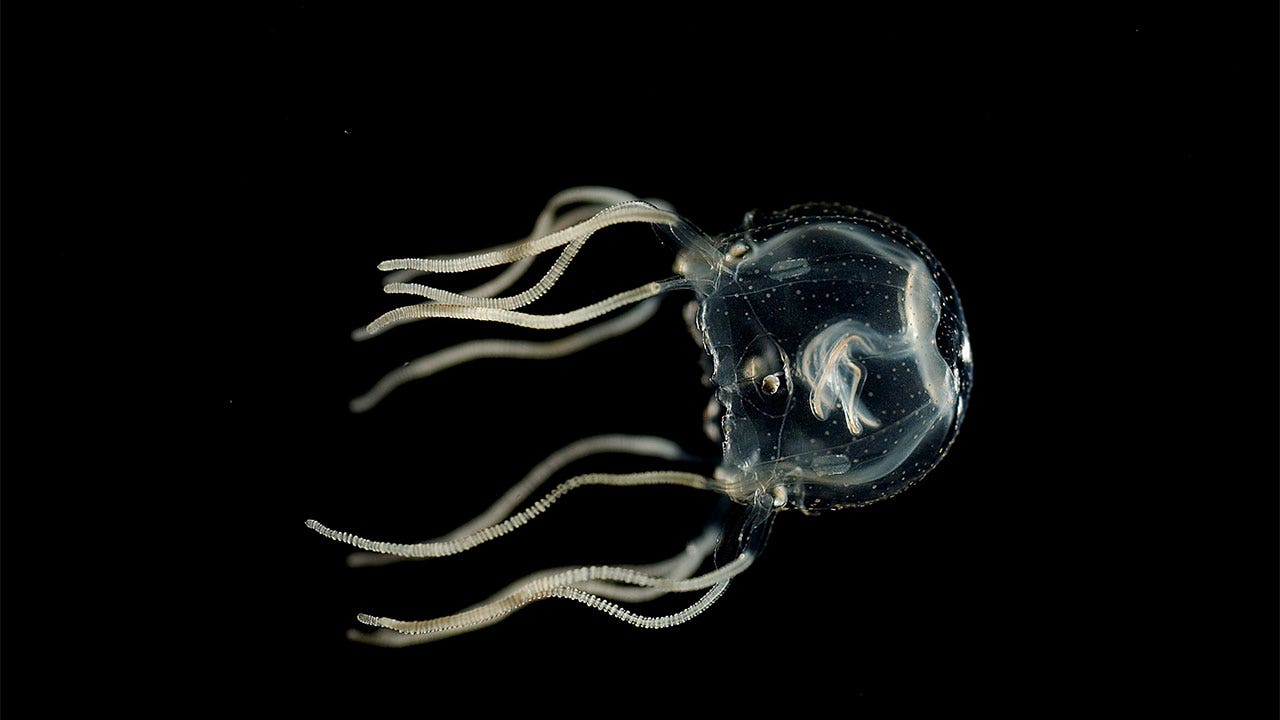New Research Reveals Jellyfish Possess Advanced Learning Abilities
A groundbreaking study published in Current Biology suggests that jellyfish are far more intelligent than previously believed. According to researchers from the University of Copenhagen, poisonous Caribbean box jellyfish have the ability to learn at a complex level, despite having only 1,000 nerve cells and lacking a centralized brain. This discovery challenges the current understanding of the brain and may provide valuable insights into cognitive functions and the development of dementia.
Jellyfish, which have been in existence for over 500 million years, were previously thought to possess limited learning capabilities. However, the study highlights their remarkable ability to adapt their behavior based on past experiences. The research focused on the box jellyfish species, known for its toxic properties, that resides in Caribbean mangrove swamps. These jellyfish utilize their extensive visual system, comprised of 24 eyes, to hunt for copepods among the mangrove roots.
Neurobiologist and professor Anders Garm, who has been studying box jellyfish for over a decade, emphasizes the significance of their advanced learning capabilities within the field of neuroscience. Garm explains that learning from past mistakes is a crucial aspect of a sophisticated nervous system. The research team discovered that the box jellyfish assesses distances by using contrast, specifically the darkness of the root in relation to the water.
Contrary to previous beliefs, the study reveals that the jellyfish employs associative learning, which involves combining visual impressions and sensations to discern the appropriate moment to swim away from the roots. This ability to quickly learn and adapt comparable to animals like fruit flies and mice challenges the traditional understanding of what creatures with simple nervous systems are capable of.
Furthermore, the research findings shed light on where exactly the learning process takes place within the jellyfish. The study provides researchers with a unique opportunity to study the precise changes that occur in nerve cells during advanced learning. Garm and his team are currently working to identify the specific cells involved in learning and memory formation.
This breakthrough in understanding jellyfish learning functions holds immense potential for future studies on advanced learning in various animal species. Garm hopes that the jellyfish can serve as a supermodel system for exploring cellular processes related to learning in animals. By comprehending the mechanisms underlying jellyfish learning, researchers may gain insights into memory and potentially contribute to the understanding and treatment of diseases such as dementia.
For more health-related articles, please visit www.foxnews.com/health. Melissa Rudy, health editor and member of the lifestyle team at Fox News Digital, is committed to providing the latest information in the field of health.
Denial of responsibility! Vigour Times is an automatic aggregator of Global media. In each content, the hyperlink to the primary source is specified. All trademarks belong to their rightful owners, and all materials to their authors. For any complaint, please reach us at – [email protected]. We will take necessary action within 24 hours.


